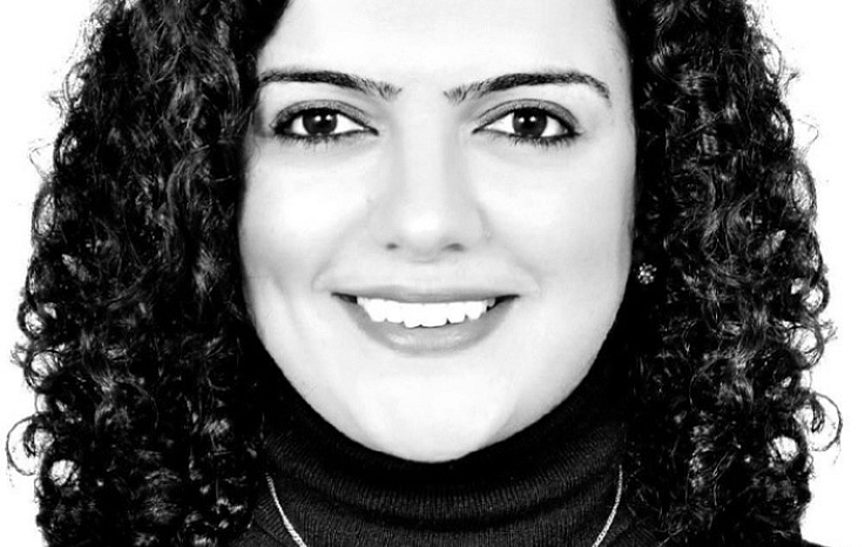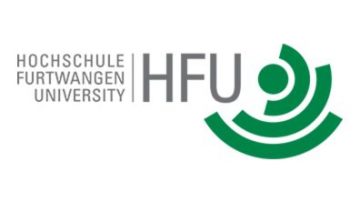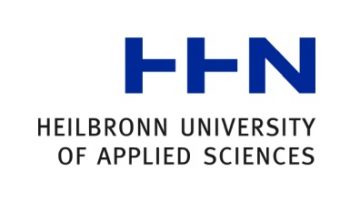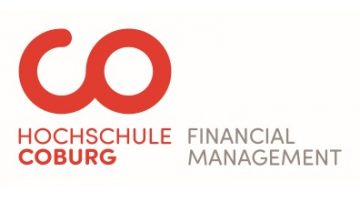Interview with DAAD Alumna Dr. Shimaa Hanafy

- Dear Dr. Hanafy, you received a DAAD scholarship for exceptional graduates from German schools abroad between the years 2003 and 2008. Would you like to tell us a little about the time before your scholarship and a little about your educational path?
I spent the first three and half years of my life with my family in Austria where my father was doing his PhD. My family then moved back to Cairo. Subsequently, my parents decided to send me and my elder sister to the Deutsche Schule der Borromäerinnen Kairo (DSB Kairo), which is one of the leading German Schools in Egypt. I am very grateful for my parents’ decision as it definitely shaped my life in many ways. I spent 14 beautiful years at DSB Kairo, starting from kindergarten in Maadi until my Abitur graduation in May 2003. This is when I happily received the DAAD scholarship to study in Germany.
- How did you decide to study in Germany? What and where did you study in Germany?
I have been extremely interested in studying economics in Germany since about grade 10. I was strongly interested in both the excellent academic education and the cultural exposure. My educational and intercultural experience at the DSB and my father’s experience in studying abroad had a strong impact on me. But, of course, I also had many questions and some doubts about living thousands of kilometers away from my beloved family. Fortunately, however, my teachers at the DSB were enormously helpful, patiently answered many of my questions and strongly encouraged me to take this step. Moreover, the fact that my parents raised me and my sister to be relatively independent, taking responsibility for our own actions, was very helpful and empowering. It was also extremely useful to talk to several DSB alumni, who were already studying in Germany, and learn about their experience.
One event in my past, in particular, provided the final impetus to take this decision: During grade 11, I received the German Pedagogic Exchange Service (PAD) Prize, which included a one-month-roundtrip to Germany in the summer of 2002. I was part of a group of 13 German-speaking, 16- and 17-year-olds from several countries. During and after this trip, I really felt confident about studying in Germany and was, therefore, well-prepared to avail of the DAAD opportunity. As part of the PAD trip, we were guests for two weeks of hosting families in beautiful Traunstein in the South of Germany. I was extremely lucky to be hosted by such a wonderful family. We really bonded very well. The family encouraged me very much to pursue my dream of studying in Germany and generously offered to help me settle in when moving to Germany (which they definitely did when I moved to Germany one year later). They also invited me to visit them frequently. Eighteen years later, we still have a special bond, are in close contact and meet regularly!
During my DAAD scholarship period between 2003 and 2008, I studied economics at Passau University. In summer 2008, I graduated as Diplom-Volkswirtin and moved to Marburg for my PhD in economics and to join the coordination team of the German-Arab Master’s Program “Economic Change in the Arab Region”, which was later transformed into “Economics of the Middle East” at Philipps-Universität Marburg. Both German-Arab Master’s programs were funded by the German Federal Ministry of Economic Cooperation and Development (BMZ) and jointly coordinated with the DAAD and the GIZ.
- What was the focus of your research? What are you personally taking with you from your time in Germany?
During my PhD, I focused on two research pillars. The first was an empirical analysis of location determinants of foreign direct investment (FDI) in Egypt and the effects of FDI on economic growth and development at the level of Egyptian governorates. This project was incredibly challenging due to the multiple obstacles of collecting and analyzing data at the governorate level in Egypt. I was the first to do such an analysis. The second research pillar evolved during my PhD and was an empirical analysis of the socio-economic determinants of voting outcomes in the first parliamentary elections in Egypt after the “Arab Spring”. Results from both research projects were published in international peer-reviewed journals.
It is quite difficult to answer the broad question on what I gained from my time in Germany. Germany quickly became my second home and both my time at DSB Kairo as well as my time in Germany significantly shaped the person that I am today. It is not even easy to draw a strict line between those two phases when it comes to their impact on me. I am absolutely “taking with me” lots of wonderful memories and experiences, life-long friendships, lots of knowledge, academic and professional experiences and much more. I even met my husband in Germany, although we both come from Cairo. We both value the German education system very much and are looking forward to sending our four-year old daughter to the German School in Seoul. Moreover, we both have strong and ongoing academic ties with Germany. As a family, we visit Germany once a year and are looking forward to travelling to Germany again after the current pandemic.
- How was your everyday life in Germany? Did you have any particularly positive and/or negative experiences?
I started my undergraduate studies in the winter semester. I remember that it took some time to get used to the relatively cold, wet and grey weather in comparison to sunny Cairo and also to get used to being thousands of kilometers away from my family and friends. Unlike today, there were no video calls in 2003! However, Germany soon became my second home. I was lucky to meet amazing people and make life-long friends. Good planning and self-discipline were certainly required to balance my studies and extra-curricular activities. I remember spending many hours reading and studying in the library. But I also very much enjoyed the student’s life in Passau, the beautiful “City of Three Rivers”. I became engaged in several extra-curricular activities, including volunteering at the student’s council where I later became an elected member. Furthermore, I worked as a research assistant and teaching tutor starting my second year of studies. All in all, my daily life was extremely full and diverse.
My positive experiences were certainly multiple, ranging from the many warm-hearted people I met, the life-long friendships I made and how well-integrated I felt in German society. I had to laugh on several occasions when some of my German friends, who were applying for a semester abroad, were asking me if I would also like to travel abroad for one or two semesters, while totally forgetting that I was already “abroad” in Germany for my entire Diplom studies. I was always very grateful to how well the DSB equipped me with perfect German, prepared me to study in Germany and to be easily integrated into German society while still preserving my own identity.
Luckily, I had no frequent negative experiences. But one negative experience, in particular, is, unfortunately, unforgettable namely the experience of a fire that broke out in the middle of the night in the building where my husband and I were living. My husband was travelling abroad on a conference at the time. I woke up in the middle of the night to sirens of ambulance and fire trucks and quickly rushed down and out of the building in shock and fear, while also experiencing some breathing difficulties. Luckily, none of the neighbors were seriously injured, although some had to be hospitalized for a few days. We were expecting to move back into the house after a few days. However, the situation was much worse than everyone expected, and it was unclear for several months when residents of the house could move back into their apartments. It was also extremely difficult to find alternative accommodation and we had to have several temporary accommodations for several months. The fire experience and its aftermath have been a tough experience.
- Do you think your time in Germany and the DAAD scholarship for exceptional graduates from German schools abroad was beneficial for your professional life?
Absolutely! The DAAD scholarship allowed me to pursue my dream of studying economics in Germany. I have received an excellent education in economics and great mentoring during my scholarship-supported five years of Diplom studies at Universität Passau. This was the first milestone of my current position in academia. Moreover, the professional and academic experience that I gained as a research assistant and teaching tutor in different chairs of economics, starting in my second study year in Passau, was very enriching and had a strong impact on the development of my career path. Those experiences led to the development of my passion for research and teaching and interest in pursuing an academic career. My studies and experience during my scholarship time were the perfect preparation for my following career milestone at Philipps-Universität Marburg where I worked as a PhD researcher and a member of the academic coordination and teaching team of two BMZ-supported, German-Arab master’s programs in Middle East Economics for six years. All in all, the education and supervision that I received as well as the experience gained in research, teaching, academic and development coordination, during my time in Germany, are extremely beneficial for my current position as an Assistant Professor of Development Economics.
- You are now an assistant professor at HUFS (Hankuk University of Foreign Studies) in Seoul, South Korea. How come and what exactly is it that you do there?
I first came to Seoul in August 2014 with my husband who had accepted a job offer as an Assistant Professor of Middle East Economics. He had just finished his PhD in Germany and I was in the final phase of my PhD writing. We were both excited to start a new adventure and gain more international experience. My plan was to finish my PhD and pursue an academic career. In February 2016, I travelled to Marburg for my PhD defense and received my doctoral degree. Luckily, an assistant professorship in development economics became vacant at Hankuk University of Foreign Studies (HUFS) in Seoul in the same year so I applied, got interviewed and was hired. I have been an Assistant Professor of Development Economics at the Division of International Studies (DIS) at HUFS in Seoul since March 2017. HUFS ranks yearly as the most globalized university in South Korea and has the largest share of international professors and students among universities in Korea. My work typically includes teaching classes of development economics, mentoring and supervising students and conducting my research agenda. I really enjoy very much the international academic working environment and the enriching intercultural exposure at HUFS. My students literally come from all over the world. For example, it is not uncommon to have more than 15 different nationalities in a class of 30 students.
- What still connects you with the DAAD today?
My connection with the DAAD did not stop with the end of my scholarship in summer 2008. On the contrary, I continued to work closely with the DAAD, joining the academic coordination team of the –at that time, new– German-Arab Master’s Program “Economic Change in the Arab Region” at Philipps-Universität Marburg in October 2008. The master’s program was jointly coordinated with the DAAD. One of the fields where we worked intensively together was the selection of DAAD scholarship holders within this program, which was later transformed into the Master’s Program “Economics of the Middle East”. We also collaborated in “fact finding missions” in the process of developing partnerships of the master’s programs with universities in the Arab region.
Moreover, I have participated in several conferences, events and workshops by DAAD in Germany, Europe, the Middle East and Korea over the last decade. For example, I was an invited member of the Expertenkreis (round of experts) of the German-Arab Transformation Partnership by the DAAD, an invited speaker at a DAAD event on German-Arab cooperation in Higher Education at the Permanent Representation of the Federal Republic of Germany to the EU in Brussels, a presenter at a DAAD-Alumni conference on the Arab Spring in Berlin, a participant at a DAAD-funded workshop on sustainability and good governance in Cairo, to name a few.
In South Korea, I have always been keen to put my students at HUFS in touch with the DAAD. For example, many of my undergraduate students at HUFS who want to pursue their master’s degree in Europe come to me for consultation. I always encourage them to get in touch with the DAAD in Korea and to review the DAAD website for matching master’s programs in Germany. Although most of them used to primarily consider universities in England due to the study language, I would say that more and more now apply for master’s programs in Germany and are pleased to find an increasing number of graduate programs that are entirely in English.
Additionally, HUFS receives many regular and exchange students from Germany. In one of my courses this semester on Globalization and Development, German students even make about 40% of the students. I usually have at least 10 German students in my classes every semester, with some DAAD-scholarship holders among them. Even in the current semester, I have more than 10 exchange students from Germany among my students despite the pandemic. All in all, I think there is a rapidly growing interest among German students to study in South Korea in general and at HUFS in particular, as well as an increasing interest of Korean and non-Korean HUFS students to study in Germany. I am certainly looking forward to intensifying the cooperation with the DAAD representation in Seoul in the future.
- You also have DAAD scholarship holders among your students in Seoul. What would you recommend to the new DAAD scholarship holders?
I recommend them to make the best out of this great opportunity, to have as much interaction and exchange as possible with fellow Korean students and to be open to cultural differences. There are also several student organizations at HUFS that offer help and assistance to international students such as the International Student Organization. However, in the current times, I certainly recommend them to be careful and responsible during the pandemic! Luckily, Korea is a beautiful country and offers lots of beautiful outdoor places to visit.
- Dear Dr. Hanafy, thank you very much for your valuable time and contribution. Are there any other points you would like to add or specify?
I would like to thank Ms. Hannah Schirm for this interview. It was my absolute pleasure to talk to you! Moreover, I would like to thank the DAAD staff in Bonn, Cairo and all over the world for their tremendous efforts and excellent work to promote higher education and enhance academic and intercultural exchange. I am looking forward to more successful cooperation with the DAAD in the future!





